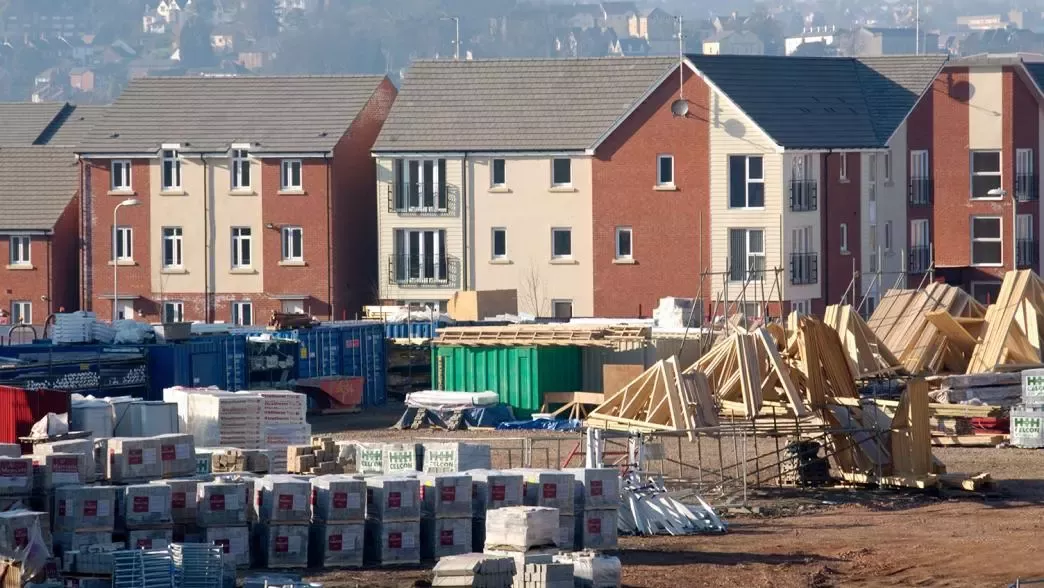The Conservatives and Labour need to get serious about tackling regional inequality
Rishi Sunak is failing to prioritise the government's 'levelling up' mission

The government has a pledge to “level up” and Labour has a plan for “real life levelling up”, but Rebecca McKee says both will fail unless central government is set up to meet the IfG’s new six tests
Regional inequality in the UK is, on key measures like productivity and healthy life expectancy, as bad as it has ever been. Turning the tide is an enormous task – and not one that can be solely delivered by a few determined ministers in Whitehall. This agenda will fail unless every part, and every level, of government is pushing together. But it is faltering, in large part, because central government in Whitehall is not set up to make levelling up a reality.
The major shake up required is only possible if there is both prioritisation – and a long-term commitment – from the top. The government’s promise is “levelling up”, while Labour’s new shadow levelling up secretary Angela Rayner has set out a plan for “real life levelling up”. Any slogan is meaningless unless the government is set up to deliver.
The problems that face levelling up are a familiar set of problems for policymakers
In our latest paper ‘Levelling up’ from the centre: Six tests for a government serious about reducing regional inequalities, we argue that both parties face the same problems in delivering on their promises. Short-termism and excessive policy churn has beleaguered attempts to halt the growing inequality between parts of the UK – since 1990 there have been 17 secretaries of state or ministers responsible for regional governance. Government has often lacked clarity on what it’s trying to achieve. Departments pull in different directions with a lack of effective co-ordination. And subnational governments are an afterthought.
Agendas like ‘levelling up’ are not unique in facing these challenges. But they are unusually dependent on getting them right to have any chance of success. Regional governance, industrial strategy and adult skills, all key policy areas deployed by government to address regional inequality, are especially prone to policy churn.
Regional inequalities are pervasive, deep rooted and sticky problems that require consistent and long-term focus. But the current government’s ‘levelling up’ agenda is only the latest in a succession of attempts, including Michael Heseltine’s ‘city challenge’ in the 1990s, various New Labour agendas such as ‘neighbourhood renewal’, and George Osborne’s northern powerhouse. Now Labour have proposed a vision for “real life levelling up”. If the shared commitment to the agenda is a cause for optimism, the ongoing lack of progress suggests little has been learnt from past failures.
The lack of progress on regional inequality is a failure of primarily of political attention
The failure to move the dial on regional inequality is not due to a lack of political consensus – both the Conservative government and Labour are remarkably aligned on the diagnosis. The lack of progress has instead been a failure of political attention, and of policy.
The fundamental problem for the current government’s 'levelling up' agenda is a political one: there remains a lack of clarity on what it means and – perhaps more crucially now – whether it is still priority for the prime minister or the levelling up secretary. Labour, meanwhile, risks coming up with yet another slogan that becomes a hook upon which an assortment of policies can be hung regardless of whether they make a difference or not.
Our paper sets out six tests that a government serious about tackling regional inequalities should meet. All six of the tests will need to be met but the first – which tests whether the agenda is a political priority – is the most important. Delivering long-term change requires a ruthless prioritisation. That is measured not just by what the government does, like continued funding for programmes at spending reviews, but also what government doesn’t do. Dropping or rejecting popular policies that work against the main priority, or pursuing less popular policies, will likely be required. To succeed, the prime minister must show a willingness to ruthlessly prioritise tackling regional inequalities and provide sustained leadership over the policy life cycle. Without political drive and clarity there is not enough clout to get the Whitehall machinery to move in the way that is needed.
There are still reasons to be optimistic if a government can meet our six tests
While the current government needs to reassert "levelling up" as a political priority, Labour needs to show how tackling regional inequality fits with its five missions. None are explicitly aimed at this target, though the missions of “growth across the country” and “opportunity for all” come closest to having a regional dimension. Angela Rayner’s challenge is to flesh out the detail so that Labour’s plan is clear and unambiguous, set out the role DLUHC and devolved governments will play, and determine which other cross-government structures they will need.
Government efforts to narrow regional inequality may not have a track record of success, but if whoever is in government can make the agenda a priority – and meet the other five tests we set out – then slogans can become reality.
- Keywords
- Levelling up
- Political party
- Conservative Labour
- Position
- Secretary of state
- Public figures
- Angela Rayner Rishi Sunak Michael Gove
- Publisher
- Institute for Government